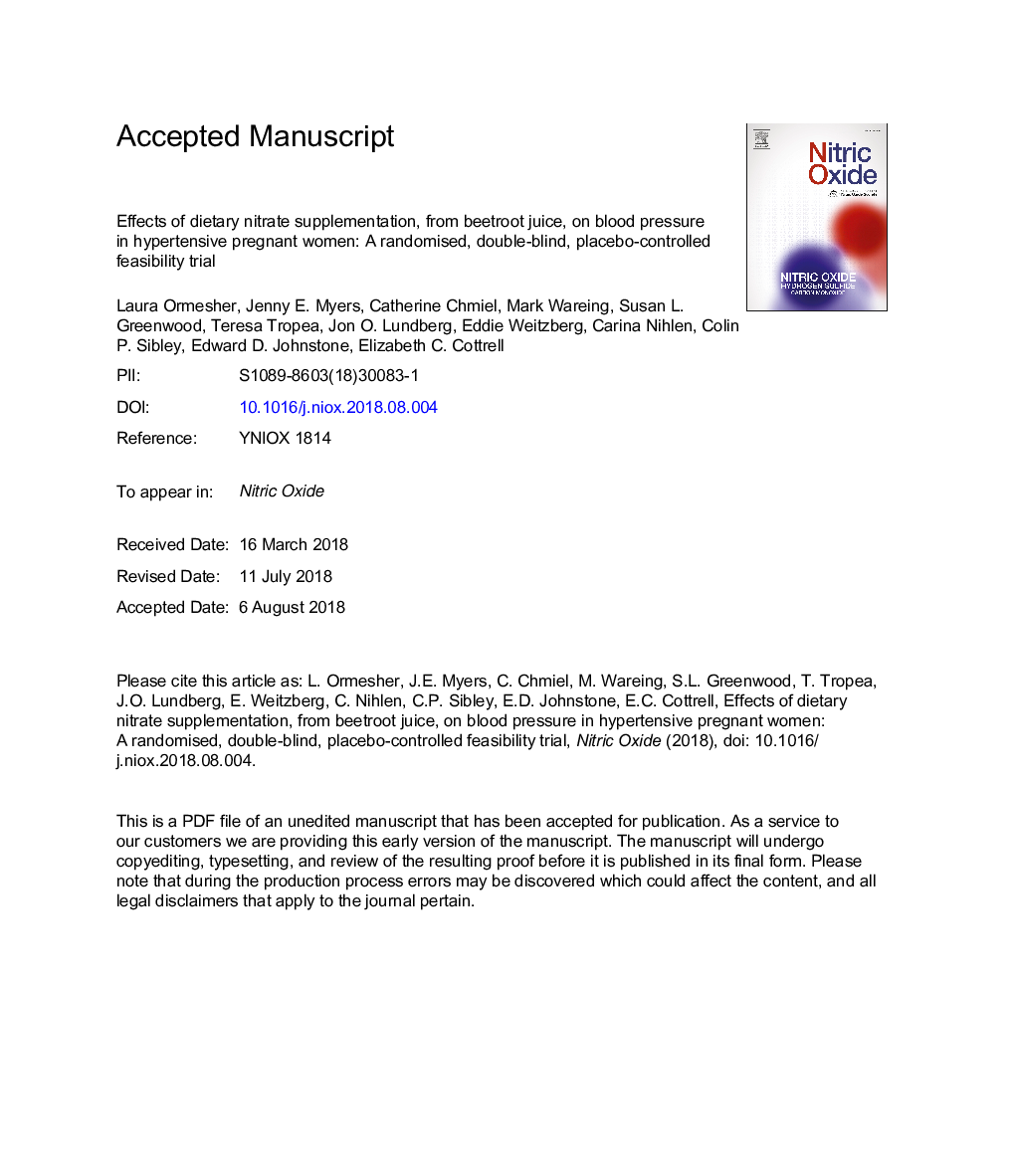| Article ID | Journal | Published Year | Pages | File Type |
|---|---|---|---|---|
| 8344405 | Nitric Oxide | 2018 | 27 Pages |
Abstract
The primary aims of this study were to determine the acceptability and efficacy of dietary nitrate supplementation, in the form of beetroot juice, to lower blood pressure in hypertensive pregnant women. In this double-blind, placebo-controlled feasibility trial, 40 pregnant women received either daily nitrate supplementation (70â¯mL beetroot juice, nâ¯=â¯20) or placebo (70â¯mL nitrate-depleted beetroot juice, nâ¯=â¯20) for 8 days. Blood pressure, cardiovascular function and uteroplacental blood flow was assessed at baseline and following acute (3â¯h) and prolonged (8 days) supplementation. Plasma and salivary samples were collected for analysis of nitrate and nitrite concentrations and acceptability of this dietary intervention was assessed based on questionnaire feedback. Dietary nitrate significantly increased plasma and salivary nitrate/nitrite concentrations compared with placebo juice (pâ¯<â¯0.001), with marked variation between women. Compared with placebo, there was no overall reduction in blood pressure in the nitrate-treated group; however there was a highly significant correlation between changes in plasma nitrite concentrations and changes in diastolic blood pressure in the nitrate-treated arm only (râ¯=â¯â0.6481; pâ¯=â¯0.0042). Beetroot juice supplementation was an acceptable dietary intervention to 97% of women. This trial confirms acceptability and potential efficacy of dietary nitrate supplementation in pregnant women. Conversion of nitrate to nitrite critically involves oral bacterial nitrate reductase activities. We speculate that differences in efficacy of nitrate supplementation relate to differences in the oral microbiome, which will be investigated in future studies.
Related Topics
Life Sciences
Biochemistry, Genetics and Molecular Biology
Biochemistry
Authors
Laura Ormesher, Jenny E. Myers, Catherine Chmiel, Mark Wareing, Susan L. Greenwood, Teresa Tropea, Jon O. Lundberg, Eddie Weitzberg, Carina Nihlen, Colin P. Sibley, Edward D. Johnstone, Elizabeth C. Cottrell,
